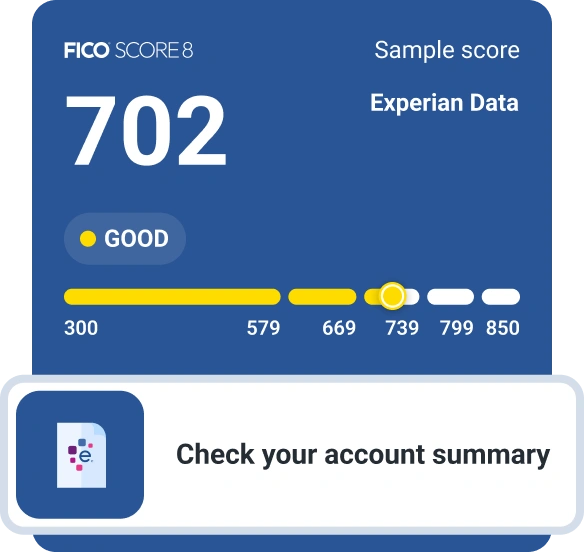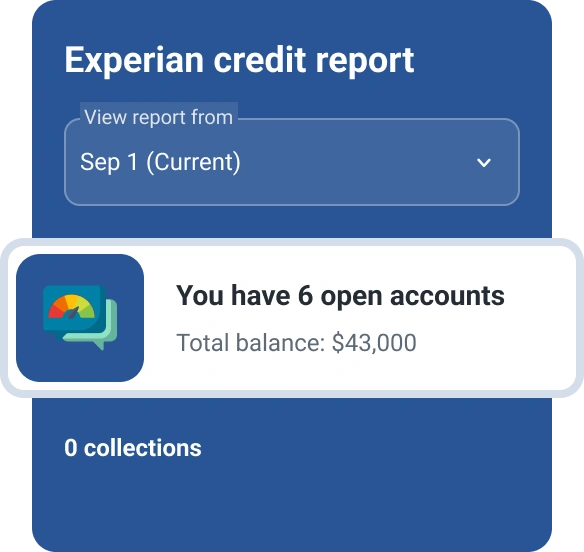11 Actions That Can Lower Your Credit Score
Quick Answer
Actions that can lower your credit score include late or missed payments, high credit utilization, too many applications for credit and more.

Good credit can make it easier to qualify for credit cards and loans, but like staying physically fit, keeping your credit in shape requires diligence. Here are 11 actions that can lower your credit score and how to avoid them.
1. Making Late Payments
Lenders typically report your accounts to one or more of the three major credit bureaus (Experian, TransUnion and Equifax). Once a payment is 30 days past due, the creditor reports it as a late payment, and it stays on your credit report for seven years.
Because payment history is the biggest factor in your credit score, even one late payment can have a big impact. Some 35% of your FICO® ScoreΘ (used by 90% of top lenders) is based on payment history.
When you discover you've forgotten to pay a bill, go online or call the lender to pay it. Paying before a billing cycle ends may avert a late payment on your credit report. Then set up reminders or autopay to keep paying on time.
2. Using Too Much Credit
Your credit utilization ratio reflects how much of your available revolving credit you're using. Lenders examine the ratio across all your accounts and the ratio for each individual account. To calculate credit utilization, divide your outstanding revolving credit balance by your credit limit and multiply by 100 to get a percentage. A $4,000 balance on a card with a $10,000 has a utilization ratio of 40%, for example.
Using over 30% of your available credit can do extra damage to your credit score; keeping credit utilization under 10% can positively impact it. Because credit utilization accounts for 30% of your FICO® Score, excessive utilization has a significant impact. Aim to keep your credit card balances under 30% of your limits and ideally below 10%.
3. Applying for Too Many Credit Accounts
Whenever you apply for credit, the lender checks your credit report; this is called a hard inquiry. Hard inquiries remain on your credit report for two years, though they typically affect your score for just a few months. A single hard inquiry usually decreases your score by five points or less, but too many hard inquiries for different types of credit at once have a bigger impact. Hard inquiries and new credit accounts together make up 10% of your FICO® Score. Applying for too much credit at once suggests you're financially overextended and more risky to lenders.
Shop around without hurting your credit by getting prequalified. Prequalification uses a soft inquiry (which doesn't affect your credit scores) to check if you're likely to qualify for credit. If you need to do a full application to get the specifics of your loan, keep them within a 14- to 45-day time frame whenever possible. Credit scoring models generally treat multiple hard inquiries for the same type of credit in a short time as one inquiry, limiting the impact to your credit score.
4. Closing Credit Accounts
Closing a credit card can cause your credit score to drop for several reasons.
First, it reduces your available credit, possibly increasing your credit utilization ratio. Closing accounts can also eventually shorten your credit history, which is based on the average age of all your credit accounts as well as your newest and oldest account, and makes up 15% of your FICO® Score. Finally, credit mix—having both revolving and installment credit—accounts for 10% of your FICO® Score. If you don't have any other revolving accounts, closing a credit card could reduce your credit mix and credit score. Unless there's an annual fee, it may be wise to keep the account open or, if there is an annual fee, talk to your card issuer about switching to a card without an annual fee.
5. Having Your Credit Limit Lowered
Recurring late or missed payments, excessive credit utilization or not using a credit card for a long time could prompt your credit card company to lower your credit limit.
This may hurt your credit score by increasing your credit utilization. Paying credit card bills on time and keeping credit utilization below 30% can keep your credit limits stable and boost your credit score.
6. Defaulting on a Loan
Defaulting on a loan has a major negative impact on your credit. After 90 days without making a debt payment, lenders typically consider you in default. A loan default stays on your credit report for seven years. Lenders may also take your collateral by repossessing your car or foreclosing on your home. A foreclosure is especially derogatory to your credit; only bankruptcy is worse.
To avoid defaulting, contact your lender to ask about changing your payment schedule or request a deferral, forbearance or loan modification. You can also try refinancing your loan to a more affordable payment. Consider credit counseling for advice on budgeting and repaying debts.
7. Cosigning on a Loan That Becomes Delinquent
Late or missed payments on a loan you cosigned for could appear on your credit report, damaging your credit. If the borrower stops paying altogether, you become responsible for the full amount.
Before cosigning a loan, carefully consider the borrower's reliability and investigate any state laws that protect cosigners. After cosigning, checking your credit report regularly can alert you of late payments you may need to bring current.
8. Accounts in Collections
Debts seriously past due (typically 90 days late) may be sent to collections. The creditor's collection department or an outside collection agency attempts to collect the money you owe.
By the time a debt goes to collections, late payments have already hurt your credit. A collection account on your credit report multiplies the damage. Collection accounts stay on your credit history for up to seven years after the debt became delinquent.
If you're having trouble making payments, contact your creditor immediately to discuss options. A reputable credit counseling agency can help you develop a debt repayment plan.
9. Debt Settlement
Debt settlement companies negotiate with your creditors to settle your debt for less than you owe. Typically, you pay the debt settlement company instead of your creditors; they hold that money in an account and then use it to settle with your creditors for a reduced amount. Sometimes presented as an alternative to bankruptcy, debt settlement can be almost as damaging to your credit due to all the missed payments on your credit report. Even after paying the reduced debt, not repaying the full amount is noted on your credit report and makes you a poor credit risk.
Consider a debt management plan with a nonprofit credit counseling agency instead. Credit counselors help negotiate payments so you can repay your entire debt, minimizing harm to your credit score.
10. Bankruptcy
Filing for bankruptcy to gain relief from debt should be a last resort. No other action causes more damage to your credit. Depending on whether you file Chapter 13 or Chapter 7, the bankruptcy remains on your credit report for seven to 10 years. Bankruptcy may also mean giving up your belongings to pay creditors.
To avoid bankruptcy, consider bringing in extra income through a side gig or extra work hours, implementing a drastic debt repayment strategy or getting credit counseling to help you pay off debt.
11. Inaccuracies on Your Credit Report
Incorrect information on your credit report could simply be a lender reporting inaccurate data, but could also signal fraud. The extent of the damage to your credit score varies.
To verify your credit report is accurate, get a free copy from the three major credit bureaus at AnnualCreditReport.com. (Checking your own credit won't affect your credit score.) You have the right to file a dispute with the credit bureau if you believe information is inaccurate.
The Bottom Line
The same good habits that help you maintain a good credit score can help you improve a poor score. Bringing late accounts up to date, paying bills on time and minimizing credit utilization show lenders you can manage your money—and theirs—responsibly.
What makes a good credit score?
Learn what it takes to achieve a good credit score. Review your FICO® Score for free and see what’s helping and hurting your score.
Get your FICO® ScoreNo credit card required
About the author
Karen Axelton is Experian’s in-house senior personal finance writer. She has over 20 years of experience as a journalist and has written or ghostwritten content for a variety of financial services companies.
Read more from Karen

